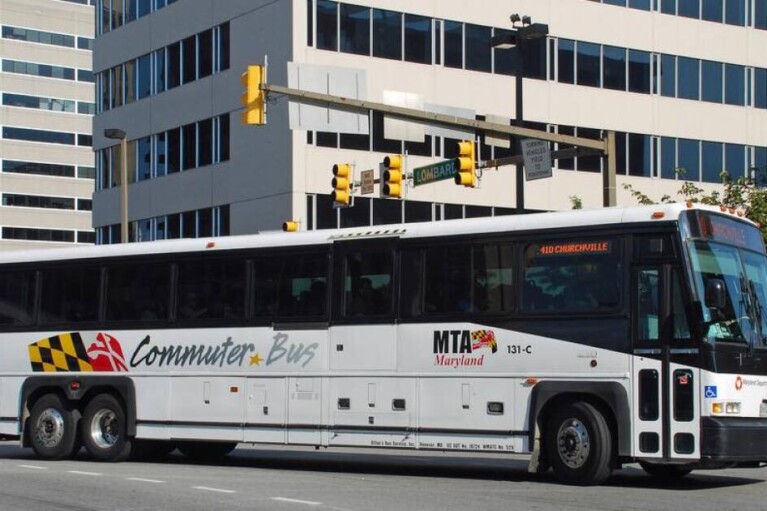
Editor’s note: Maryland Matters reporters sat down with some of the candidates for governor at the recent Maryland Association of Counties conference. Interviews with these candidates have appeared over the past few days. And we will bring you interviews with other gubernatorial contenders as the campaign unfolds.
Wes Moore likes to say he comes “from a long line of preachers and teachers.”
But over a coffee recently in Ocean City, one particular preacher in his lineage came to mind: his grandfather.
His grandfather was the first on his mother’s side to be born in the U.S.
But his great-grandfather, a vocal minister, was run out of the country by threats from the Ku Klux Klan, resettling his family in Jamaica.
Years later, Moore’s grandfather would return – “He always said I was born here and no one has the right to take away my American-ness” – and become the first Black minister in the Dutch Reformed Church.
But despite a righteous life that revolved around giving back to others, his grandfather was unable to accumulate wealth, something that’s held in common by too many generations of Black Americans, Moore says.
“This is a person who devoted his entire life to his family, his entire life to his country, who was maybe the most patriotic man I’ve ever met in my life – and he wasn’t able to hand over anything to his children and grandchildren,” Moore said.
Moore sums up his focus in seeking the Democratic nomination for governor in 2022 alliteratively: “Work, wages and wealth will really be the north stars.”
What does that mean? Those concepts touch on everything a state administration should be focused on, from the training that students will receive in schools to getting rid of transportation deserts, to thinking of housing in new ways, and eradicating health care bills as the leading cause of bankruptcy in the state.
“We can be so much better when you think about the assets that this state has,” Moore said.
He notes that Prince George’s County “has a real stake to claim” for being the nation’s highest-income African American jurisdiction, but still struggles with issues like high foreclosure rates and low wealth.
“And it’s a core distinction between saying we have high income and saying we have high wealth. Those are two different things,” Moore said.
The pandemic has brought issues of inequity into stark relief. In the coming weeks, Moore plans to release a set of equity-focused policy proposals on the campaign’s core topics of work, wages and wealth.
“For some people this past year was an inconvenience. And for some people this past year was catastrophic.”
One policy Moore wants to enact quickly is an acceleration of the state’s move to a $15 minimum wage.
“The fact that we are talking about putting together a $15 minimum wage by 2025 is absurd,” Moore said of the state’s current policy. “It will not [take] until 2025 in my administration. It’s something that Maryland should have already had done.”
Moore said the state also needs more direction when it comes to universal plans for improving peoples’ lives.
“We have a state that is asset rich, and strategy poor,” Moore says, listing some of the things that make Maryland great: the Chesapeake Bay, Johns Hopkins, NASA, and more. “We have all these assets that are sitting there and no strategy about how they’re interacting, how they’re coordinating, how we have a school system that’s actually preparing our students to take advantage of those assets.”
While recognizing the governor’s limited ability to drive education policy in Maryland — with a state school board and superintendent, as well as elected local school boards — Moore said he would drive support for education reform as governor.
“Constitutional indirect responsibility does not mean abdication of responsibility,” he said, alluding to Republican Gov. Lawrence J. Hogan Jr.’s veto of the multi-billion-dollar Blueprint education reforms. “…The constitutional responsibility of the governor to be able to think about our educational system has never been more pronounced.”
There are some issues with the implementation of the Blueprint – particularly the large local contributions required of Prince George’s County and the city of Baltimore, he said. But “addressing those things in the operationalization and implementation should not come to the detriment of actually getting stuff done.”
The plan includes universal best practices that all Maryland children deserve, Moore said, not just the wealthiest ones.
“We should be implementing a universal pre-K system in the state. All the data continues to reinforce that the earlier we can get kids inside of classrooms, in a structured educational environment, it is the best thing not only for the child, but it is the best thing for the family.”
The Blueprint will be the “core driver of … the future of the state’s economy, the future of the state’s workforce, and what’s the future of the state’s prospects,” he said.
Moore has never held elected office, but “my entire professional career I have been involved in government: state government, local government, federal government,” he said, noting his careers as an Army paratrooper and officer, head of an organization that guided first-generation and disadvantaged college students, and running one of the largest nonprofits in the country, Robin Hood, which he left earlier this year to run for governor.
Some of the things he’s most proud of during his four years at Robin Hood “weren’t just the allocations of cash” but changes in public policy, including an adjustment to make the child tax credit fully refundable.
“Literally we cut the child poverty rate in almost half in the stroke of a pen,” Moore said.
Earlier this year, he advocated for a bill to provide state financial assistance to close the “appraisal gap” in some neighborhoods, or the gap between the cost of construction or renovation of a home versus the potential sale price, a dynamic exacerbated by historic red-lining practices.
“I’ve worked with state government, for my entire professional career, and I’ve been public service, my entire professional career,” Moore said. “I just haven’t been a politician.”
Click here to read our interview this week with Republican Kelly Schulz. Click here to read our interview this week with Democrat John King.





 Creative Commons Attribution
Creative Commons Attribution